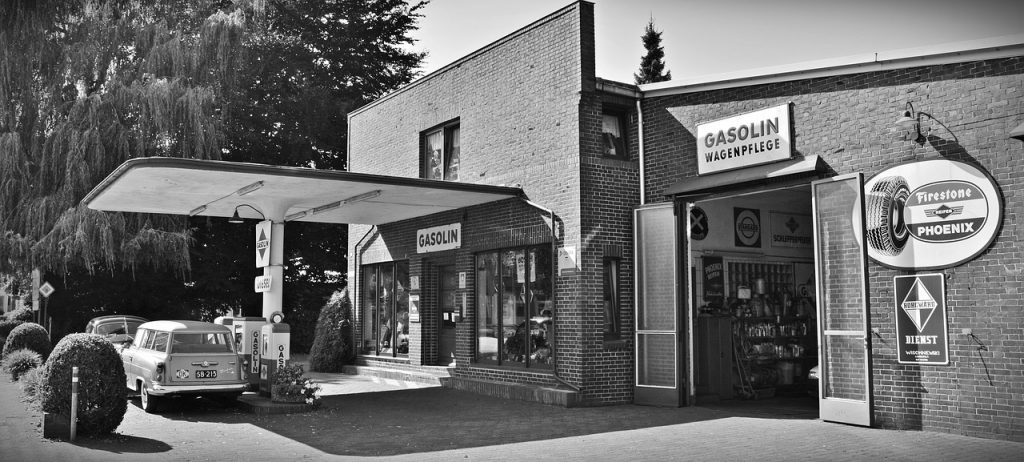As we become more aware of the impact of pollution on our environment, we’re seeing a growing number of regulations aimed at reducing emissions from vehicles. One of the ways this is being achieved is through the use of diesel exhaust fluid (DEF). In this article, we’ll examine what DEF is and how it works.
What Is Diesel and Why Is It Harmful to People and the Environment?
Diesel fuel was patented in 1892, but it wasn’t until the 1920s that it was first utilised in commercial vehicles. By the 1930s, it became popular in passenger vehicles as well. Nowadays, diesel fuel is widely used in various applications, such as freight and delivery vehicles, boats, and farm equipment. Additionally, it is commonly used for trains, military equipment, and construction vehicles.
Chemically, diesel fuel is a mixture of hydrocarbons that are obtained from crude oil. When diesel fuel is burned in an engine, it releases harmful emissions such as nitrogen oxides (NOx), particulate matter, and sulfur oxides (SOx). These emissions have been linked to a range of health problems, including respiratory issues, heart disease, and cancer. They also contribute to air pollution, which can harm the environment and wildlife.
What Is Diesel Exhaust Fluid?
Diesel Exhaust Fluid (DEF) is a non-toxic, clear liquid that is used in diesel engines equipped with Selective Catalytic Reduction (SCR) technology. DEF is made up of 32.5% high-purity urea and 67.5% deionised water. When injected into the exhaust system, DEF helps reduce harmful emissions by converting nitrogen oxides (NOx) into harmless nitrogen and water vapour. DEF is required in all diesel engines with SCR technology and is typically stored in a separate tank on the vehicle.
How Does Diesel Exhaust Fluid Work?
Diesel exhaust fluid is injected into the exhaust system of a diesel engine. When the exhaust gases come into contact with the DEF, a chemical reaction occurs that converts the NOx into nitrogen and water vapour.
The process is carried out by a selective catalytic reduction (SCR) system. The SCR system consists of a catalyst and a control unit that monitors the exhaust gases and controls the injection of DEF.
The SCR system is very effective at reducing NOx emissions. It can reduce NOx emissions by up to 90% and is currently the most effective method available for reducing emissions from diesel engines.
Benefits of Diesel Exhaust Fluid
The main benefit of diesel exhaust fluid is that it helps to reduce the amount of harmful pollutants that are released into the atmosphere. By reducing NOx emissions, DEF helps to improve air quality and reduce the risk of respiratory problems.
In addition to its environmental benefits, DEF can also help improve diesel engine performance. By reducing the amount of NOx that’s produced, DEF can help to improve fuel efficiency and increase engine power.
Another benefit of DEF is that it’s very easy to use. The system is automated, so there’s no need for drivers to add DEF to their vehicles manually. The DEF tank is usually located next to the fuel tank, and the system is designed to automatically inject the correct amount of DEF into the exhaust system.
DEF is also very cost-effective. While the initial cost of the SCR system can be high, the cost of DEF itself is relatively low. In addition, the improved fuel efficiency achieved by using DEF can help offset the system’s cost.
Conclusion
Diesel exhaust fluid is an important technology that’s helping to reduce emissions from diesel engines. By converting harmful NOx emissions into harmless nitrogen and water vapour, DEF is improving air quality and reducing the risk of respiratory problems. In addition to its environmental benefits, DEF can also help to improve the performance of diesel engines. It’s easy to use and cost-effective, making it an attractive option for fleet operators and individual drivers alike. As regulations around emissions become stricter, we’re likely to see more and more vehicles using DEF. It’s a technology that’s helping to make our air cleaner and our environment healthier.
If you’re experiencing trouble with contaminated fuel, or you made the mistake of putting diesel in petrol or petrol in a diesel tank, Fuel Fixer can help. Our mobile fuel draining service can come to you and remove the contaminated fuel, clean the fuel system, and refill it with the correct fuel and diesel exhaust fluid if needed. We’re available 24/7 and cover the entire UK, so you can get back on the road quickly and safely. Contact us today for a fast and reliable fuel tank cleanup service.

